Ethically sourced and sustainable produce may cost a little more, but they are better ultimately for you in the long run, finds Priyanka Elhence.
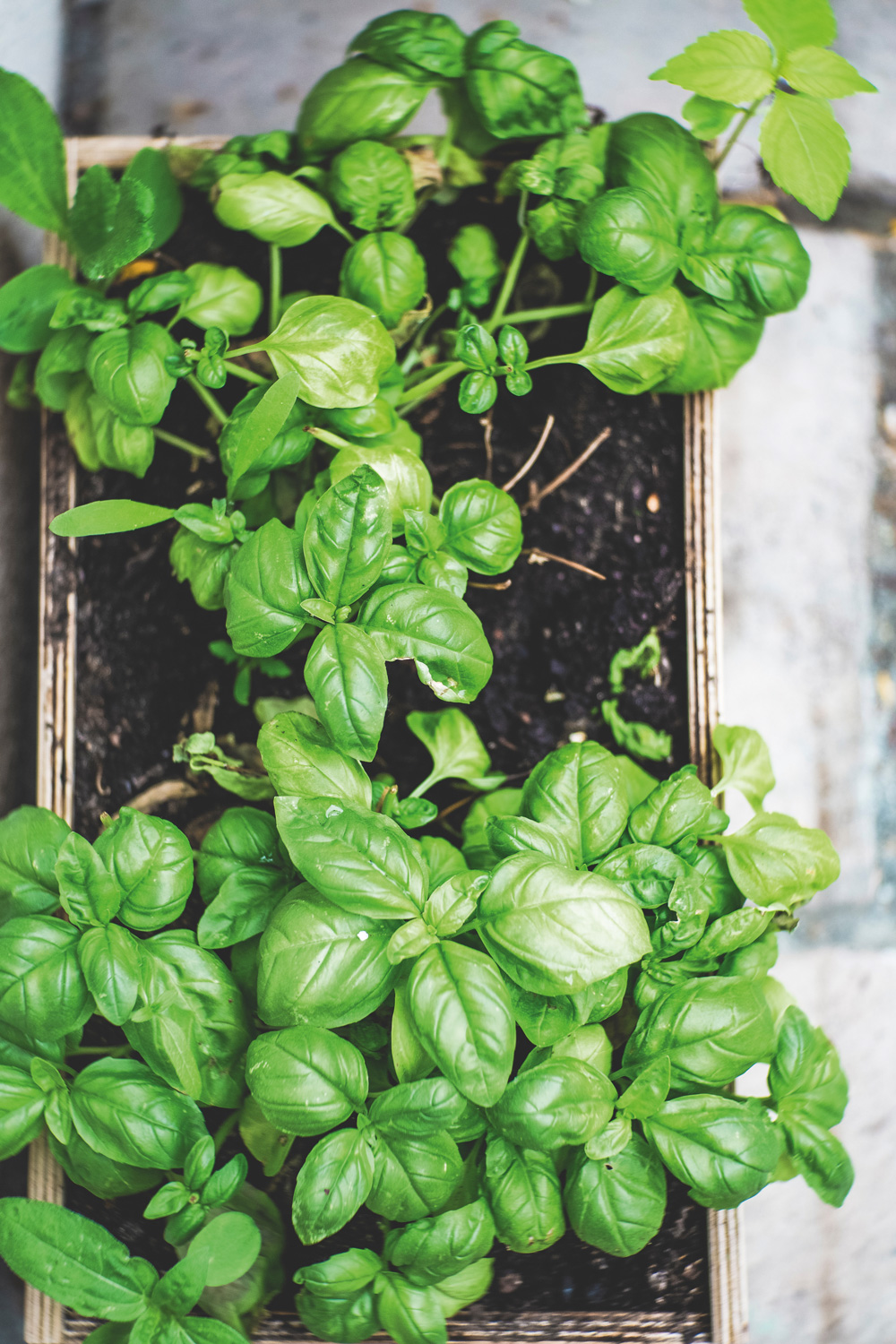
We increasingly want to feel closer to food, and the interest in choosing quality produce from sustainable sources has never been greater as we look more seriously at where our food comes from, and how it is grown and farmed. Singapore’s expanding disposable income, increasing health concerns and consumer awareness is driving the local organic market boom, as consumers progressively go ‘green, local and niche’ for a healthier lifestyle.
Less processed and more natural, healthier foods, while gradually replacing red meat by more plant-based protein is all the rage. In a recent study conducted by UBS on the future of food, KPMG reported the health and wellness industry being valued at approximately US$769 billion. And with good reason too. In the same study, the World Health Organization (WHO) estimated that 80 percent of premature heart disease cases, strokes and incidences of type-2 diabetes, and up to 40 percent of cancers, could be avoided if unhealthy diets were eliminated.
However, our current agricultural systems are unsustainable now, with industry experts saying that access to nutritious food is a struggle as the demand for organic produce and specialised diets increases the pressure on earth’s already dwindling resources. Even vegan Milo is having a plant-based evolution as Nestlé Australia launches a world-first version of plant-based, reduced-sugar malt drink, which boasts lower sugar content as soy protein and oat flour replace milk powder lactose in the original recipe. According to the UN, global meat production currently accounts for 40% of land use, majority of greenhouse gas (GHG) emissions and 70% of freshwater consumption. Earlier this year, the EAT Lancet Commission concluded that transitioning from animal- to plant-based or flexitarian diets would help mitigate the increase in GHGs; and Barclays predicts the alternative proteins industry will grow from US$2.2 billion globally to US$140 billion by 2030.
This Includes:
• Plant-based protein - made from plants, nuts, fruits, vegetables and beans (think Beyond Meat and Impossible Foods);
• Cultivated / lab-grown - Netherlands-based start-up MosaMeat uses self-reproducing cells to produce an animal-based, cultured meat product on a petri dish.
• Whole food protein alternatives – using plants and fungi to mimic meat.
• Insect protein – edible bugs such as crickets have 40 percent more protein than beef, with 5mg/100g of iron in ground crickets versus only 3.5mg/100g of iron in minced beef.
Luckily, we’re on the cusp of a technology-powered agricultural revolution, shining the spotlight on sweeping innovative trends such as vertical farming, cultured fake meats, algae aquaculture, biotech, 3D printing and robotics to transform the way we produce and source healthier foods. Less energy, a lower carbon footprint, and less food miles (the distance fresh produce travels) means we get fresh food faster, and with minimal packaging too.
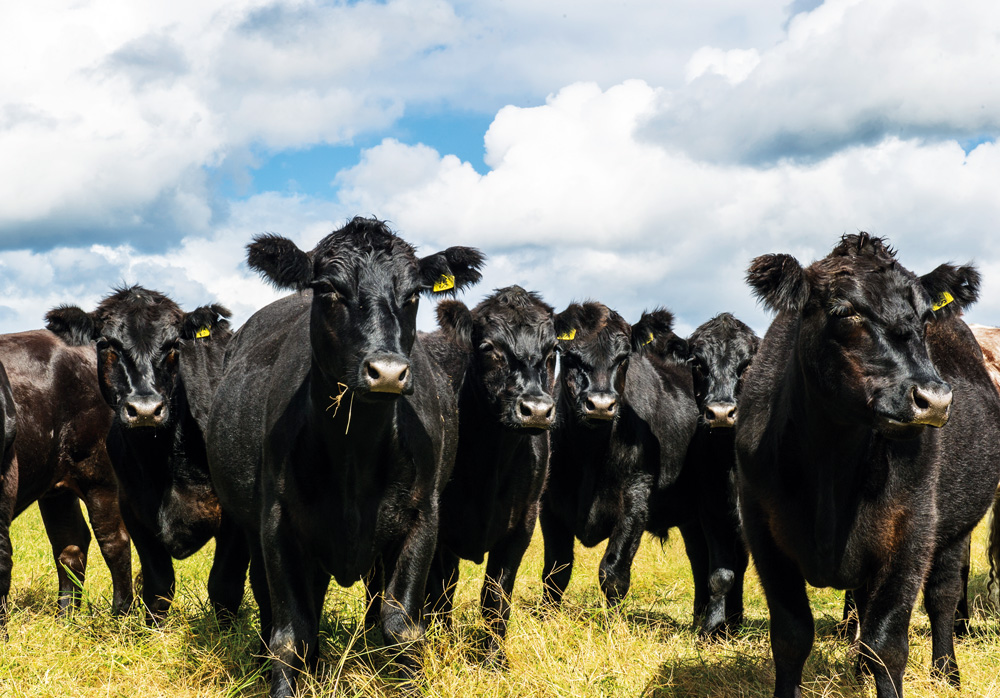
How Well Do Food Sources Match Up?
So where does the nutritional value of these highly processed plant-based meats sit? At best, there may be a nutritional draw. Beyond Burger has been criticised for its high sodium content, while Impossible Foods are processed so much, you might as well eat real meat.
So why does red meat get such a bad rep? Ellen Young, regional manager Southern Asia, Meat and Livestock Australia, offers her perspective on Australian red meat, “Southeast Asia has one of the highest rates of iron-deficiency anaemia globally, and red meat is an excellent source of iron. Today’s consumers value the provenance of quality food, desiring ethical practices that safeguard animal welfare and sustainability. Australian red meat stands out because it truly is a product of its natural environment. Our farmers understand that their livelihoods rely on maintaining a healthy ecosystem, and good animal health and welfare.”
Young added that the Australian red meat and livestock industry is targeting to be carbon neutral by 2030, as Australian farmers used diverse sustainable farming practices to safeguard the environment, manage emissions and water use, increase biodiversity, reduce waste and implement environmentally sustainable land management practices (such as solar panels for greater energy efficiency; fencing-off dams to increase biodiversity; and improving soil health and groundcover.)
Furthermore, cattle and sheep farmers invest more than $13 million annually in research, development and extension projects to continually reduce the industry’s environmental impact. “The combined integrity of Australia farmers, efficient supply chains, and having an unspoiled, natural environment, with governmentrun border protection and biosecurity systems, has underpinned Australia’s reputation for producing trusted, healthy, high-quality red meat from paddock to plate,” assures Young.
Likewise says Leelyne Yeo, general manager, Culina Singapore, “With heightened awareness of health and climate change, consumers are increasingly conscious about what they eat, where their food comes from, how it is produced and the impact food has on the environment. We are a nation of foodies, unlikely to compromise on quality, freshness or taste. Culina partners only with producers who share our philosophy and commitment to quality and food safety, for sustainably and ethically sourced products such as FRENZ Eggs and John Stone Beef.
Did you know that until earlier this year, Singapore did not have any truly certified organic eggs and free range eggs? To be certified as genuinely organic, both the feed and the hens’ living environment must be organic, inclusive of only natural sanitisers and ultraviolet light for the cleansing and sanitising process. Frenz Eggs, New Zealand’s naturally nutrient-rich, 100% traceable, co-op operated eggs are finally available in supermarkets here now, 100% washed, UV-sanitised and bacteria-free.
Says Rob Darby, founder of FRENZ, “Driving quantity at the lowest price is the usual mantra for mainstream agriculture and farming practices; but companies like FRENZ, which have been freerange farming since the early '80s, follow Hippocrates’ ethos instead - Let food be thy medicine and medicine be thy food.” Like him, we choose health. Consumers are realising that wealth without health is not a long-term strategy, and we’re finally seeing a growth in the number of people who realise that all food is not necessarily equal, and shouldn’t be judged on price alone. In a world where words like ‘sustainability’ are just mere marketing tools, consumers want safe and nutritious foods, understanding that it comes at a fair price.”
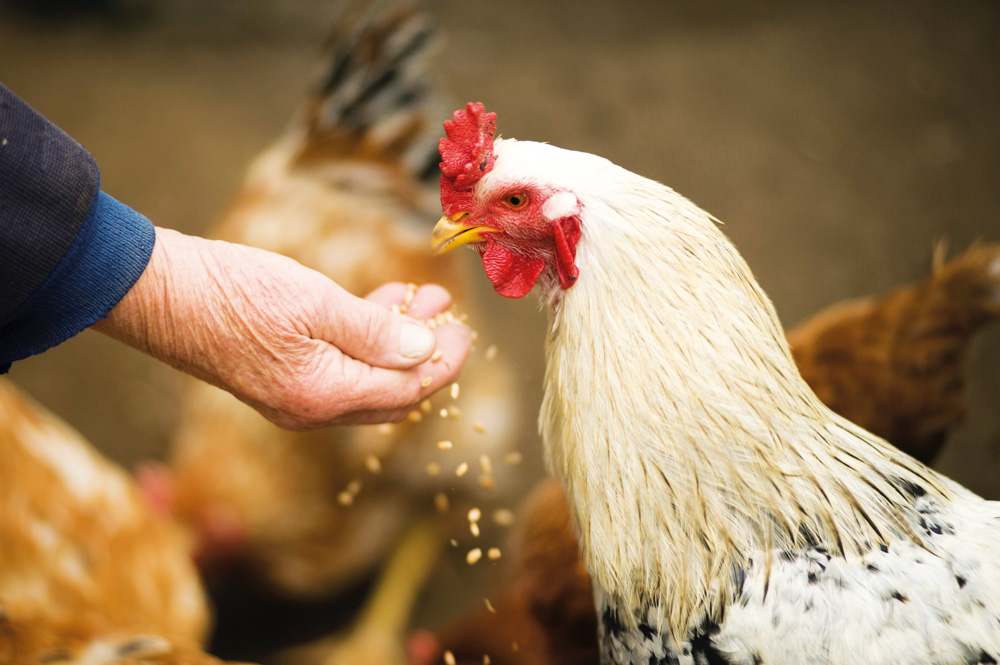
Darby also reveals that organic hens were once those that were fed unsprayed, non-GMO natural grains, and were ableto roam outdoors amongst fresh pastures. Now, ‘organic fed’ eggs can come from the same wire cages that produce the cheapest and cruellest method of production, where hens never see the light of day, let alone green pastures. “Today, it would take six commercially grown chickens to give you the same amount of nutrients you would have gotten from just one chicken grown in the 1970s. For loyal, sustainable consumers who care for their environment and how their food is produced, this is unacceptable, and they won’t be swayed by price alone.”
Young agrees, “Importantly, sustainability alone does not equal quality produce, and price sensitivity is a prevalent consideration amongst consumers, which further underscores the need to educate them in the importance of nutrition in the food consumed.”
“When families realise that the eggs they are buying are free of antibiotics, pesticides, artificial food colourings and chemical sprays, and instead have naturally higher omegas, proteins and nutrients because of the hen’s superior health and natural pasture diet, then you have a customer for life. For them, good health doesn’t cost, it pays healthy dividends,” adds Darby.
.jpg)
Bringing Together The Best Of The World's Produce
We also took a closer look at poultry, seafood and juice offerings at Fine foods specialist Classic Fine Foods, which has recently launched its online deli portal, bringing topquality produce from 11 different countries across Europe, the Middle East and Asia directly to consumers.
Says Mickael Penvern, Marketing Manager, Classic Fine Foods, “Our poultry partner Mieral has 101 years of experience in quality poultry selection, and they select only the best of pure breed, AOP/PDO certified Bresse Poultry.” Currently, there are only 1 million AOP/PDO Bresse Poultry chickens produced annually, a mere drop in poultry industry ocean. “Mieral’s traditional, ethical farming methods respect the well-being of animals and the natural soil the hens feed on. These freerange breeds are specifically fed with greens, natural minerals, molluscs, insects, cereals from the area and cow’s milk, with no GMO or antibiotics in the feed to promote faster growth, all over a minimum 10sqm space per animal. The healthy chickens live longer compared to other poultry before reaching full maturity, and are then hand selected for slaughtering.”
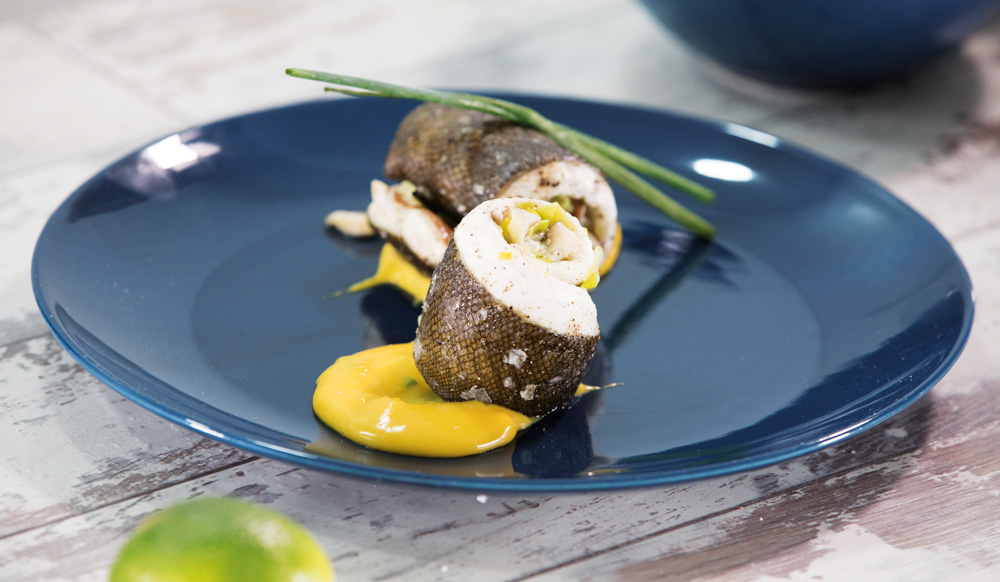
From land to sea, we have Stolt Sea Farm, a landbased aquaculture operation in Spain which produces sole, turbot and caviar from white sturgeon in its on-shore sea farms, and has been awarded Best Aquaculture Practices (BAP) certification in 2019 for its firm commitment towards sustainability, a first for the Iberian Peninsula.
With decades of innovation and research and development, Stolt Sea Farm is considered an industry example of premium and sustainable aquaculture, knowing sustainability and safety are fundamental values for their consumers. Says Stolt's Marketing Assistant Ana Alvarez, “We strongly believe aquaculture is the most sustainable way of animal protein production, and our mission is to guarantee high-quality seafood for future generations. We carry out a complete breeding cycle, which means we can fully ensure that our high five-point sustainability and safety standards are being met.” These standards include optimal animal welfare; vegetaland marine-protein-only (free from OGM) fish feed; constant innovation and research; environmental care; and giving back to the communities in which they operate.
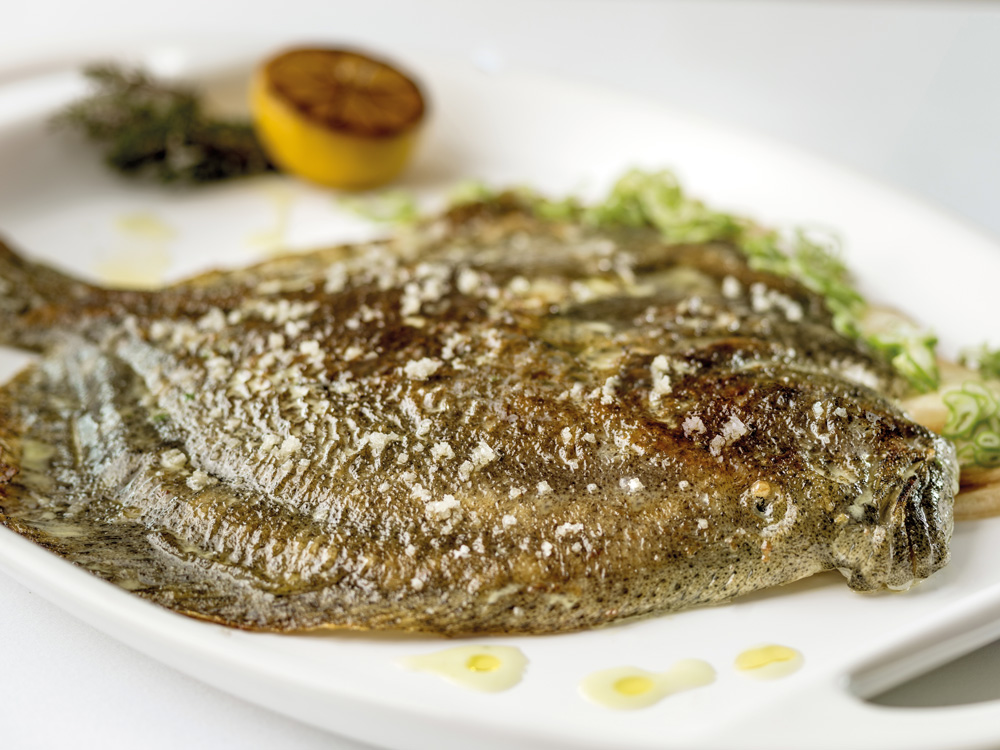
“Business should be used as a force for good in the world because we have a responsibility to the planet and the community,” says Les Vergers Du Mékong (LVDM) founder Jean-Luc Voisin, who believes sustainability is the only path to a secure and long-term future for business. Since 2000, LVDM, a French-owned Vietnambased company, produces affordable, premium farm fresh juices and jams through ethical and sustainable farming with local Vietnamese fruit growers, completely free of concentrate, preservatives and additives.
LVDM’s unique business model works on the ‘From the Farm to the Fork’ approach, with complete traceability over the quality of farms, crops and ingredients. Their sustainable value chain strategy is to convert their 2,000 small-scale family farmers to organic farming, increasing farmer revenue, while decreasing their carbon print by contracting farmers to replace methaneproducing rice plantations with CO2 neutralising fruit trees (more than 40,000 trees have already been planted along the Mekong Delta since 2017).